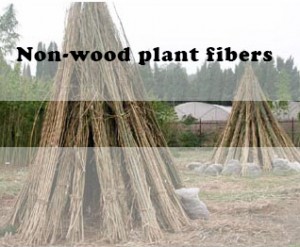recyclable bags
-
Posted: April 05, 2016Read more »
Plastic is a byproduct of petroleum and not exactly environmentally friendly. Seeing a landscape littered with plastic is not nice on the eyes or the landscape. In order to make paper bags, more and more trees obviously will need to be cut down. On top of all this, plastic and paper bags simply cannot match the durability of a cotton bag.

Nowadays people are switching to more ecologically friendly products which include the use of cotton bags. The advantage of cotton bags
-
Posted: June 22, 2015Read more »
Non-wood plant fibers have been used to make paper for centuries. Nowadays jute, kenaf and other similar fibers are cultivated in Southeast Asia and the Far East. Kenaf is one of the allied fibers of jute and shows similar
 22characteristics. Kenaf was long used for pulp production in Bengal and came to the attention of the West probably in the late nineteenth century when it was noted as a strong fiber, that was superior in strength to even the paper from which the Bank of England notes were made. The kenaf plant has been selected from 500 other plants as the most promising non-wood fiber alternative for the manufacture
22characteristics. Kenaf was long used for pulp production in Bengal and came to the attention of the West probably in the late nineteenth century when it was noted as a strong fiber, that was superior in strength to even the paper from which the Bank of England notes were made. The kenaf plant has been selected from 500 other plants as the most promising non-wood fiber alternative for the manufacture -
Posted: April 10, 2015Read more »
Several apartment complexes are nowadays taking initiatives to reduce their carbon footprint. The most common way to do this is by a recycling program. The rents in such complexes may be higher since the complex management pays for curbside service. Before finalizing on an apartment, be sure to inquire from the landlord about the building recycling. You should follow best practices and only recycle acceptable items. Make a list of items that qualify for recycling and put it up on the refrigerator so that you can check before chucking.

Currently, the global community
